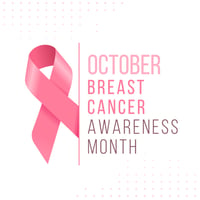World Blood Donor Day: A Call to Action
Navigating the Respiratory Flu/COVID Season: A Comprehensive Guide
As the weather cools and people gather indoors more frequently, the threat of respiratory illnesses like influenza (flu) and COVID-19 looms larger. With the added complexity of ongoing COVID-19 variants, understanding the risks and taking proactive measures is crucial to protect yourself and your loved ones.
Understanding the Respiratory Flu/COVID Season
The respiratory flu/COVID season typically runs from fall to spring, with peak activity occurring between December and February. This is because colder temperatures and lower humidity levels favor the spread of respiratory viruses. Additionally, increased indoor gatherings and reduced ventilation during the winter months create ideal conditions for virus transmission.
Symptoms of Respiratory Flu and COVID-19
While both influenza and COVID-19 can cause similar symptoms, there are some key distinctions:
- Influenza: Fever, cough, sore throat, runny or stuffy nose, muscle or body aches, headache, fatigue, occasional vomiting or diarrhea in children
- COVID-19: Fever, cough, shortness of breath, fatigue, muscle aches, headache, new loss of taste or smell, sore throat, congestion or runny nose, nausea or vomiting, diarrhea
Vaccination: The Cornerstone of Protection
The most effective way to protect yourself against influenza and COVID-19 is to get vaccinated. Annual flu vaccination is recommended for everyone over six months of age, while COVID-19 vaccination is recommended for everyone over six months of age, with booster doses for individuals at higher risk for severe illness.
Additional Preventive Measures
Beyond vaccination, several preventive measures can further minimize your risk of respiratory illnesses:
- Frequent handwashing: Wash your hands often with soap and water for at least 20 seconds, especially after being in public places or before eating.
- Respiratory hygiene: Cover your mouth and nose with a tissue or your elbow when coughing or sneezing, and dispose of used tissues promptly.
- Avoid close contact with sick individuals: Stay home if you are sick and avoid close contact with people who are showing symptoms of respiratory illness.
- Wear a mask in crowded indoor settings: Consider wearing a mask in crowded indoor settings, especially if you are unvaccinated or at higher risk for severe illness.
- Clean and disinfect frequently touched surfaces: Regularly clean and disinfect frequently touched surfaces at home, work, and in public places.
Staying Informed and Seeking Timely Care
Stay informed about the latest updates on influenza and COVID-19 by following reliable sources such as the Centers for Disease Control and Prevention (CDC) and the World Health Organization (WHO). If you experience symptoms of respiratory illness, seek prompt medical attention to receive appropriate diagnosis and treatment.
Remember, prevention is key to navigating the respiratory flu/COVID season effectively. By prioritizing vaccination, adhering to preventive measures, and staying informed, you can protect yourself, your loved ones, and your community from the spread of respiratory illnesses.
If you don’t want to sit at urgent care for hours and cannot get into your primary care provider. RevIVe Medical & Wellness is available to provide timely care and reduced waiting times. We offer in-person and telehealth options. You can request an appointment online or by calling 336-265-7305.



